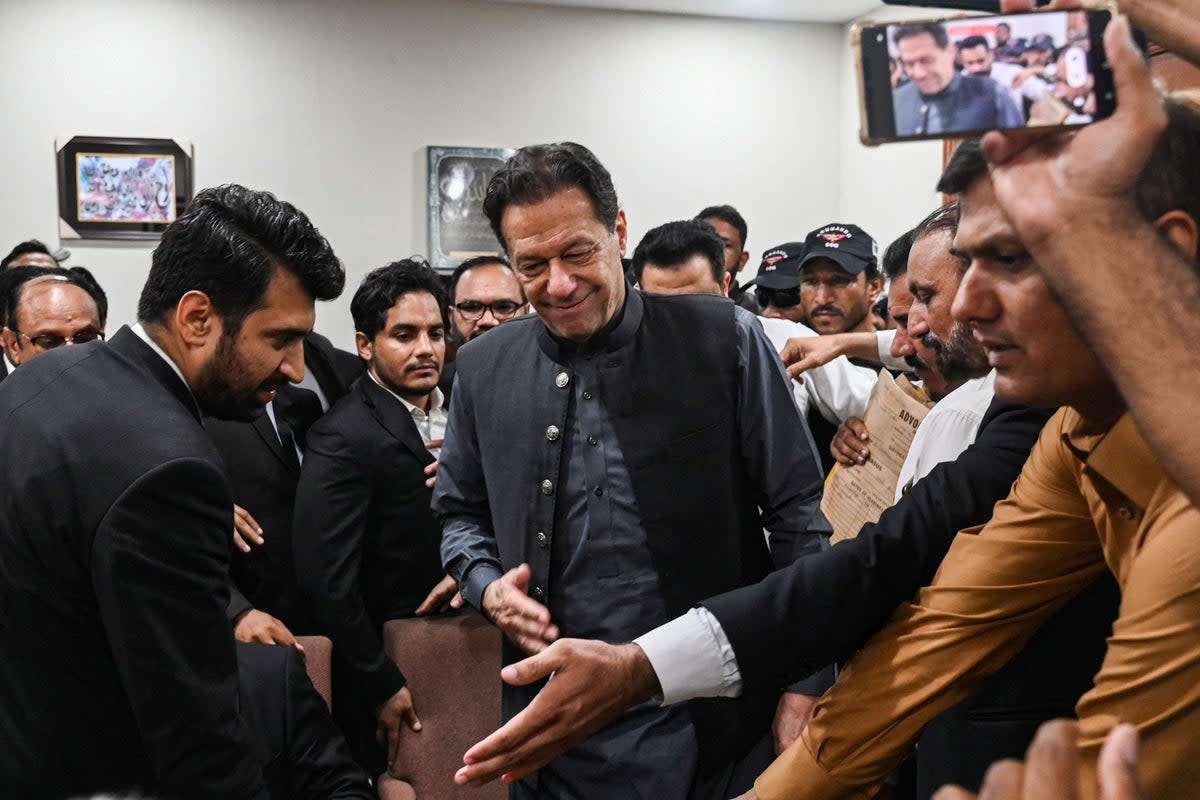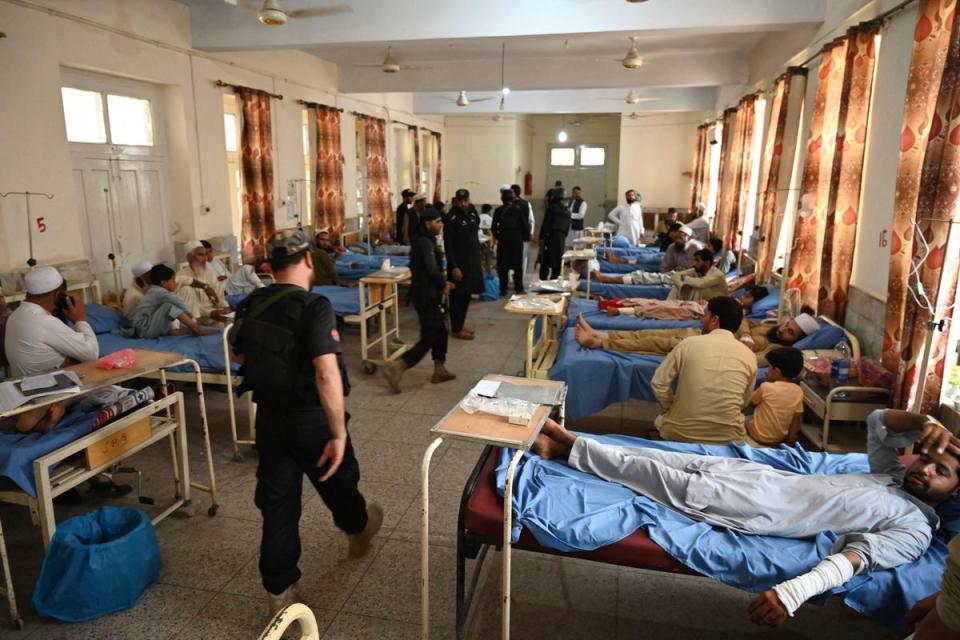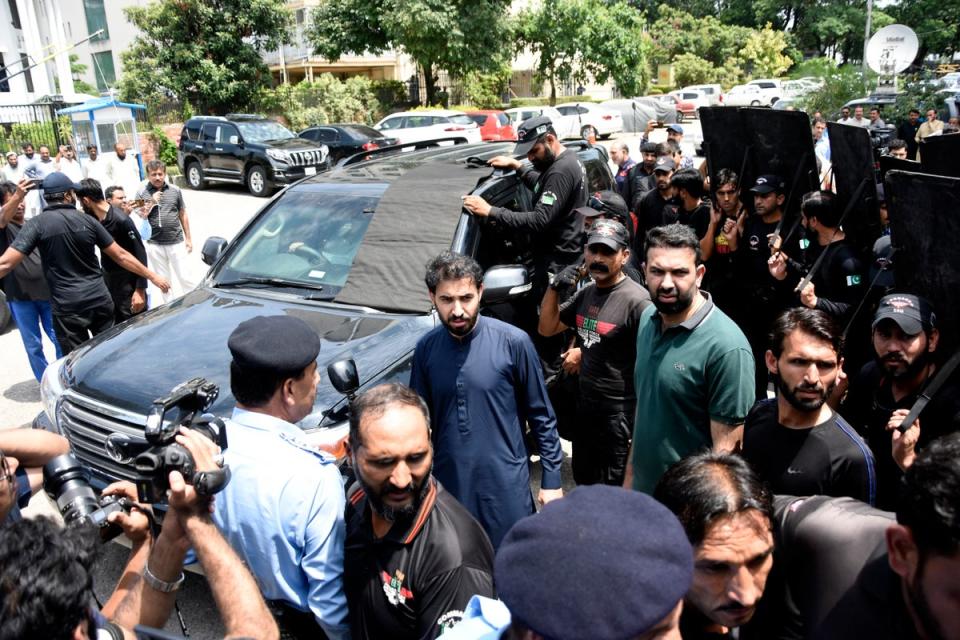Fears of more political violence as Pakistan prepares for elections – with or without Imran Khan

The deadly suicide bombing that tore through a packed political rally in Pakistan on Sunday comes just two weeks before the government is due to be disbanded, paving the way for a general election.
It also comes after the unprecedented nationwide protests and riots that followed former prime minister Imran Khan’s arrest in May and an earlier attempt on Khan’s life that left him with long-lasting nerve damage.
The threat of further political violence looms large over the coming vote, with the election commission postponing key state elections earlier this year on the basis that they could not be carried out safely.
Analysts say there are hopes that the election can bring an end to a period of deep political uncertainty since Khan was ousted in a vote of no confidence, as well as install a government with the mandate to tackle one of South Asia’s worst economic crises, exacerbated by last year’s devastating floods.
After Khan spent the past 16 months since his ouster calling for early polls to be held, “it’s now safe to say the elections will happen, as the government has pledged to step down and pave the way for a caretaker government,” says Michael Kugelman, director of the South Asia Institute at the Wilson Center. “After a long period of uncertainty, we can expect elections in November.
“One of the drivers of the political crisis has been high degrees of uncertainty about the electoral calendar,” he tells The Independent. “With the election schedule now taking shape, the crisis will ease, even if only modestly.”
Sunday’s attack, which killed 56 people and targeted an election rally held by a key hardline party in prime minister Shehbaz Sharif’s ruling coalition, has brought back vivid memories of the terrorism fears that have plagued recent elections, says Husain Haqqani, a senior fellow at the Hudson Institute who served as Pakistan’s Ambassador to the United States from 2008 to 2011.

“Terrorist groups try to limit the campaign capability of parties they dislike by targeting their rallies,” he said, citing past incidents involving the Pakistan People’s Party and the Awami National Party which were hit by attacks ahead of elections in 2008 and 2013.
“Historically, Islamist terrorist groups have spared Imran Khan’s PTI,” says Haqqani – but the ousted leader faces his own challenges in the run-up to the vote. Khan says the assassination attempt that left him wounded in November last year has been followed by subsequent attempts and that he still fears for his life.
As things stand he and his PTI party have not been disqualified from running in the election. But Khan is facing near-daily trips to court on some 170 criminal charges brought since he was removed from power, with cases ranging from corruption to sedition and murder.
He has previously told The Independent that all the charges are politically motivated and that they will not prevent him from contesting – and winning – a general election whenever it is held, but in reality, the pressure from the authorities has taken a heavy toll.
Thousands of PTI supporters and party members have been arrested in the aftermath of May’s protests, which targeted facilities associated with the country’s powerful military in an unusually bold display of anger against the government.
The crackdown has forced a mass exodus of Khan’s party members, with more than 100 senior and mid-level party officials, including former chief ministers, former governors and several former cabinet ministers leaving PTI.
After being removed from office, “Khan’s stance has been that he is the most popular leader in the country and the military should talk to him, bypassing the government that replaced his,” says Haqqani.
“He has lost [to the army] by using violence to create the impression that Pakistan would become ungovernable if he was not restored to power or if he was arrested. Now, his party members’ attacks on army installations on 9 May, after Imran Khan’s arrest, have become the basis for a crackdown on [his] party, which the party seems ill-equipped to resist.”
Prime minister Shehbaz Sharif’s government has made tackling Khan as a political opponent a priority, knowing that he can still galvanise huge ground support if allowed to contest the election freely.
“Given all the charges he faces – many of them trumped-up, political charges – there’s a good chance he could be arrested again when his bail is up. And it would be difficult for him to evade arrest, given that he has said he won’t leave the country and because of fears for his safety he hasn’t ventured beyond his home in Lahore,” says Kugelman.
“But we shouldn’t overstate the inevitability of arrest,” he adds.

The tactic of neutralising him by significantly diminishing his political clout has worked quite well, he says. “Khan may be free, but he’s been left with little to work with. For the establishment, that may be just as good of an outcome as another arrest.”
If PTI does look like it is gaining strength again ahead of the election, Khan could yet face being disqualified from running for office by the election commission, just as opposition leader Nawaz Sharif – Shehbaz’s brother – was disqualified in 2017 to pave the way for Khan’s victory.
In another possible scenario, analysts say, Khan’s party could be declared a terrorist organisation off the back of the May riots and banned from contesting elections.
It means that, one way or another, the elections will likely take place in “the absence of a robust opposition”, and the parliament that will emerge from the polls will be deeply fragmented – the last thing Pakistan needs amid its various crises, says Farzana Shaikh, associate fellow for the Asia-Pacific programme at Chatham House.
“I would be among the vast majority who are extremely worried about the current political situation in Pakistan. It is extremely uncertain,” she tells The Independent.
“Banning a party does not bode well for the health of a parliamentary democracy,” she says.
Kugelman says that “an outright ban of the [PTI] party would be its death knell” but Khan will still have every right to contest the elections until that has happened. “Government officials have hinted at the possibility of a ban, but such a move would likely face resistance from the courts.
“At any rate, PTI revolved around Khan. And if his own political clout has been diminished, it doesn’t matter how popular he continues to be. He and PTI will struggle to be electorally significant.”
He suggests Khan could try and fight the election from a jail cell, “but with so many senior party leaders in jail, out of politics, or having switched to another party, and with Khan facing large numbers of charges and fearing for his life, it will be difficult for him to campaign”.
His last hope would be to bank on many PTI voters coming out en masse to “vote out a government that’s become deeply unpopular”, he says.
“Still, Khan’s electoral prospects have dimmed considerably in recent months, because of the crackdown on him and his party. He remains very popular, but that doesn’t necessarily translate into political clout,” he adds.

 Yahoo News
Yahoo News 
